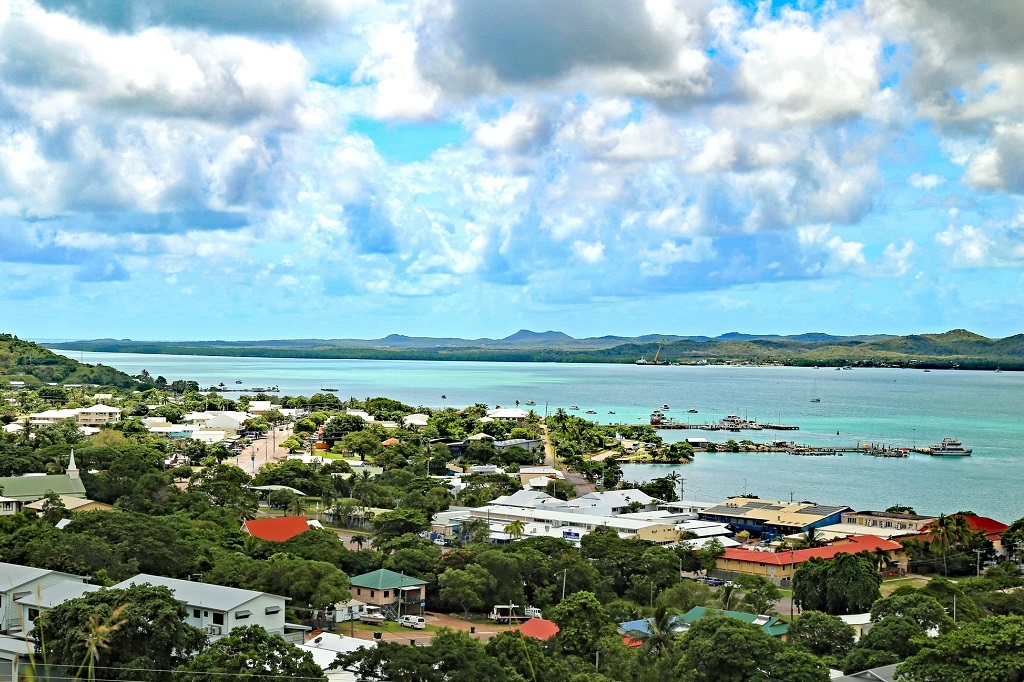
- Australia violated the rights of indigenous people by failing to protect them against the effects of climate change.
- The UN Human Rights Committee ruled in favour of indigenous Torres Islanders who had filed a complaint against Australia.
- The Islanders pointed to measures such as failure to upgrade seawalls on islands or to cut greenhouse gas emissions.
- Get the biggest business stories emailed to you every weekday, or go to the News24 Business front page.
Australia violated the rights of indigenous people by failing to adequately protect them against the effects of climate change, a United Nations watchdog has ruled, ordering Canberra to pay compensation.
In a ground-breaking decision, the UN Human Rights Committee ruled in favour of indigenous Torres Islanders who had filed a complaint against Australia over its failure to adapt to climate change.
The Islanders had pointed to measures such as failure to upgrade seawalls on their islands or to cut greenhouse gas emissions.
"Australia's failure to adequately protect indigenous Torres Islanders against adverse impacts of climate change violated their rights to enjoy their culture and be free from arbitrary interferences with their private life, family and home," the committee said in its decision issued on Friday.
Eight Australian nationals and six of their children - all indigenous inhabitants of Boigu, Poruma, Warraber and Masig, four small, low-lying islands in Australia's Torres Strait region - filed the complaint in 2019.
They claimed that changes in weather patterns had direct harmful consequences on their livelihood, culture and traditional way of life.
Severe flooding had destroyed family graves and left human remains scattered across their islands, they said.
They also argued that the changing climate, with heavy rainfall and storms, had degraded the land and trees, reducing the amount of food available from traditional fishing and farming.
Islands could 'disappear'
"Advancing seas are already threatening homes, as well as damaging burial grounds and sacred cultural sites," the claimants said when they filed their complaint.
"Many Islanders are worried that their islands could quite literally disappear in their lifetimes without urgent action."
The committee, whose 18 independent experts are tasked with monitoring the implementation of the International Covenant on Civil and Political Rights, found that Australia had violated two articles of the convention in the case.
Taking account of the islanders' close, spiritual connection with their traditional lands, it questioned "the delay in seawall construction" on their islands and ruled that Australia's failure to take timely and adequate measures to protect them had led to the violation of their rights.
READ | Australia passes law for net zero emissions by 2050
The committee, whose opinions and recommendations are non-binding but carry reputational weight, called on Australia to "make full reparation to individuals whose Covenant rights have been violated."
The country, it said, should "provide adequate compensation (to the islanders) for the harm that they have suffered" and should also "engage in meaningful consultations... to conduct needs assessment".
It should also implement the measures needed to "secure the communities' continued safe existence on their respective islands", it said.
In the ruling, the committee listed a number of arguments by Australia, including that climate change was a global phenomenon attributable to the actions of many states and requires global action.
The decision could have implications for other countries as well.
"The Committee has created a pathway for individuals to assert claims where national systems have failed to take appropriate measures to protect those most vulnerable to the negative impacts of climate change on the enjoyment of their human rights," committee member Helene Tigroudja said in a statement.
"States that fail to protect individuals under their jurisdiction from the adverse effects of climate change may be violating their human rights under international law," she added.




 Publications
Publications
 Partners
Partners












